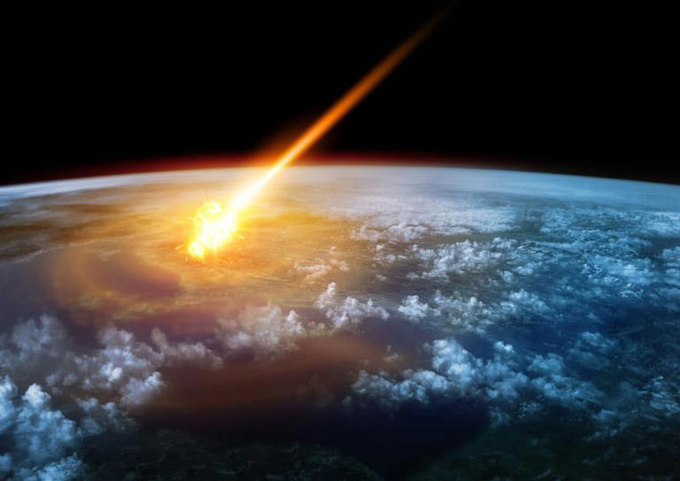November 28, 2025 | 05:00 GMT +7
November 28, 2025 | 05:00 GMT +7
Hotline: 0913.378.918
November 28, 2025 | 05:00 GMT +7
Hotline: 0913.378.918

Here comes the fertilizer.
The meteorite that wiped out the dinosaurs was an insignificant chunk of rock compared to a monster that slammed into the Earth billions of years earlier, creating enough heat to boil off the top layer of the oceans, researchers say.
The meteorite, known as S2, was up to 200 times bigger than the one that ended the age of the dinosaurs and it acted as a "fertilizer bomb" that gave life on Earth what it needed to flourish, researchers say.
In a study published in the Proceedings of the National Academy of Sciences, researchers say "giant impacts" like the one 3.26 billion years ago were "not just agents of destruction but also conferred transient benefits on early life."
Lead study author Nadja Drabon, a Harvard geologist, tells the CBC that the type of asteroid that hit contained a lot of phosphorus, which the early oceans were "really starved" of. "You can almost picture it like a fertilizer bomb that just put a lot of phosphorus like across the entire globe. And this is a very important nutrient for life," she says. The meteorite, believed to have been up to 37 miles in diameter, also caused a gigantic, planet-wide tsunami that "brought waters from the deep oceans that are rich in iron and nutrients up to the surface where life is living," Drabon says.
Drabon says the meteorite likely killed off microbes on what little land there was at the time and in the upper part of the ocean, but life survived in cracks in rocks and in the deep ocean.
After a few years or decades, life "not only survived and bounced back right away, but we actually think that it really bloomed," she says, though multicellular life didn't emerge until billions of years later.
Drabon and her team, one of multiple groups of scientists to independently determine that S2 aided the development of early life, collected hundreds of pounds of rock from a region in South Africa that has some of the oldest exposed rock on Earth, NBC News reports.
(MSN; Reuters)

(VAN) On November 27, in the meeting with Minister Tran Duc Thang, Mayor Yin Yong shared Beijing’s experience to improve environment and air quality.

(VAN) After 30 years, both sides identified strategic areas of cooperation: sustainable production, increasing coffee value and training for farmers.
/2025/11/27/4910-4-164708_294.jpg)
(VAN) On the afternoon of November 27 in Beijing, Minister of Agriculture and Environment Tran Duc Thang held a working session with several major Chinese enterprises operating in the agriculture and environment sector.

(VAN) The Department of Animal Health issued a provisional guideline requesting local authorities to increase surveillance, collect samples for testing, and conduct epidemiological investigations according to the established procedure.

(VAN) The United Nations recommends that Vietnam utilize data and artificial intelligence to enhance early disaster warnings and reduce GDP losses by 3.2% in the context of climate change.

(VAN) On the morning of November 27 in Beijing, Minister Tran Duc Thang and the Deputy Commissioner General of the General Administration of Customs of China signed a protocol on fresh jackfruit exports.

(VAN) As floodwaters recede, a vast network of irrigation works across eastern Gia Lai is emerging in a state of severe disrepair, with extensive damage demanding urgent restoration ahead of the 2025-2026 winter-spring cropping season.